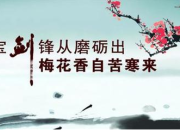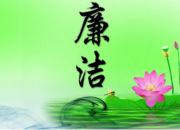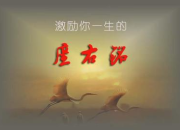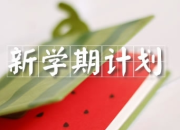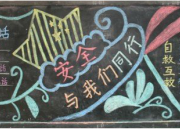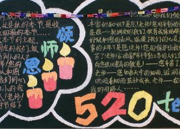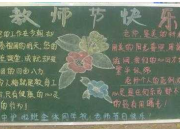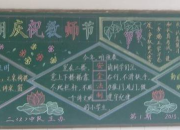美文赏析
时间:2021-08-31篇一让我们微笑吧
The thing that goes the farthest toward making life worthwhile, that costs the least and does the most, is just a pleasant smile.
那最能赋予生命价值、代价最廉而回报最多的东西,不过一个令人心畅的微笑而已。
The smile that bubbles from the heart that loves its fellow men, will drive away the clouds of gloom and coax the Sun again.
由衷地热爱同胞的微笑,会驱走心头阴郁的乌云,心底收获一轮夕阳。
It's full of worth and goodness, too, with manly kindness blent; It's worth a million dollars, and it doesn’t cost a cent.
它充满价值和美好,混合着坚毅的仁爱之心;它价值连城却不花一文。
There is no room for sadness when we see a cheery smile; It always has the same good look; it's never out of style; It nerves us on to try again when failure makes us blue;
当我们看到喜悦的微笑,忧伤就会一扫而光;它始终面容姣好,永不落伍;失败令我们沮丧之时,它鼓励我们再次尝试;
The dimples of encouragement are good for me and you.It pays the highest interest — for it is merely lent;
鼓励的笑靥于你我大有裨益。它支付的利息高昂无比──只因它是种借贷形式;
It's worth a million dollars, and it doesn’t cost a cent.
它价值连城却不花一文。
A smile comes very easy — you can wrinkle up with cheer. A hundred times before you can squeeze out a salty tear. It ripples out, moreover, to the heartstrings that will tug, and always leaves an echo that is very like a hug.
来一个微笑很容易──嘴角欢快翘起来,你能百次微笑,可难得挤出一滴泪;它的涟漪深深波及心弦,总会留下反响,宛若拥抱。
So, smile away! Folks understand what by a smile is meant. It’s worth a million dollars, and it doesn’t cost a cent.
继续微笑吧!谁都懂得它意味着什么。它价值连城却不花一文。
篇二:美文赏析:打开心门拥抱生活
We often close ourselves off when traumatic events happen in our lives; instead of letting the world soften us, we let it drive us deeper into ourselves. We try to deflect the hurt and pain by pretending it doesn’t exist, but although we can try this all we want, in the end, we can’t hide from ourselves. We need to learn to open our hearts to the potentials of life and let the world soften us.
生活发生不幸时,我们常常会关上心门;世界不仅没能慰藉我们,反倒使我们更加消沉。我们假装一切仿佛都不曾发生,以此试图忘却伤痛,可就算隐藏得再好,最终也还是骗不了自己。既然如此,何不尝试打开心门,拥抱生活中的各种可能,让世界感化我们呢?
Whenever we start to let our fears and seriousness get the best of us, we should take a step back and re-evaluate our behavior. The items listed below are six ways you can open your heart more fully and completely.
当恐惧与焦虑来袭时,我们应该退后一步,重新反思自己的言行。下面六个方法有助于你更完满透彻地敞开心扉。
1. Breathe into pain
直面痛苦
Whenever a painful situation arises in your life, try to embrace it instead of running away or trying to mask the hurt. When the sadness strikes, take a deep breath and lean into it. When we run away from sadness that’s unfolding in our lives, it gets stronger and more real. We take an emotion that’s fleeting and make it a solid event, instead of something that passes through us.
当生活中出现痛苦的事情时,别再逃跑或隐藏痛苦,试着拥抱它吧;当悲伤来袭时,试着深呼吸,然后直面它。如果我们一味逃避生活中的悲伤,悲伤只会变得更强烈更真实——悲伤原本只是稍纵即逝的情绪,我们却固执地耿耿于怀。
By utilizing our breath we soften our experiences. If we dam them up, our lives will stagnate, but when we keep them flowing, we allow more newness and greater experiences to blossom.
深呼吸能减缓我们的感受。屏住呼吸,生活停滞;呼出呼吸,更多新奇与经历又将拉开序幕。
2. Embrace the uncomfortable
拥抱不安
We all know what that twinge of anxiety feels like. We know how fear feels in our bodies: the tension in our necks, the tightness in our stomachs, etc. We can practice leaning into these feelings of discomfort and let them show us where we need to go.
我们都经历过焦灼的煎熬感,也都感受过恐惧造成的生理反应:脖子僵硬、胃酸翻腾。其实,我们有能力面对这些痛苦的感受,从中领悟到出路。
The initial impulse is to run away — to try and suppress these feelings by not acknowledging them. When we do this, we close ourselves off to the parts of our lives that we need to experience most. The next time you have this feeling of being truly uncomfortable, do yourself a favor and lean into the feeling. Act in spite of the fear.
我们的第一反应总是逃避——以为否认不安情绪的存在就能万事大吉,可这也恰好妨碍了我们经历最需要的生活体验。下次感到不安时,不管有多害怕,也请试着勇敢面对吧。
3. Ask your heart what it wants
倾听内心
We’re often confused at the next step to take, making pros and cons lists until our eyes bleed and our brains are sore. Instead of always taking this approach, what if we engaged a new part of ourselves that isn’t usually involved in the decision making process?
我们常对未来犹疑不定,反复考虑利弊直到身心俱疲。与其一味顾虑重重,不如从局外人的角度看待决策之事。
I know we’ve all felt decisions or actions that we had to take simply due to our “gut” impulses: when asked, we can’t explain the reasons behind doing so — just a deep knowing that it had to get done. This instinct is the part of ourselves we’re approaching for answers.
其实很多决定或行动都是我们一念之间的结果:要是追问原因的话,恐怕我们自己也道不清说不明,只是感到直觉如此罢了。而这种直觉恰好是我们探索结果的潜在自我。
To start this process, take few deep breaths then ask, “Heart, what decision should I make here? What action feels the most right?”
开始前先做几次深呼吸,问自己:“内心认为该做什么样的决定呢?觉得采取哪个方案最恰当?”
See what comes up, then engage and evaluate the outcome.
看看自己的内心反应如何,然后全力以赴、静待结果吧。
